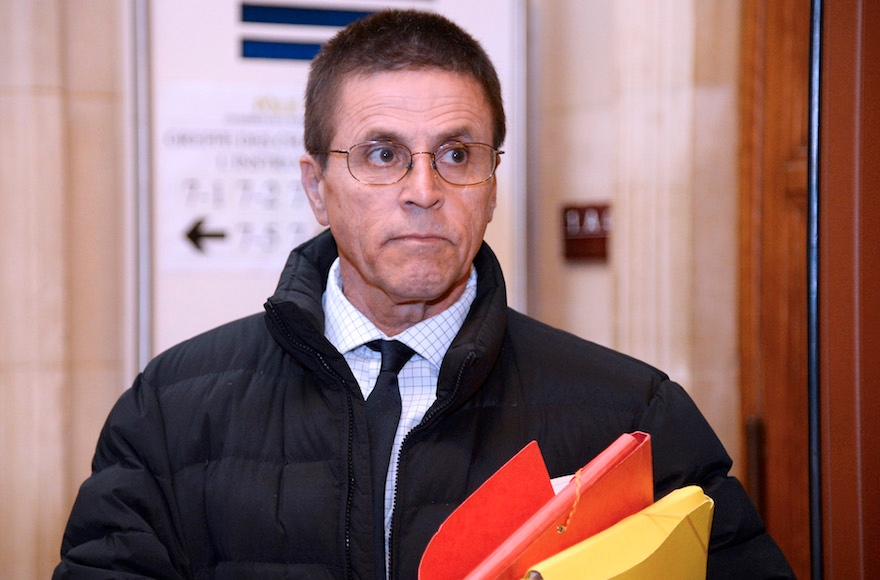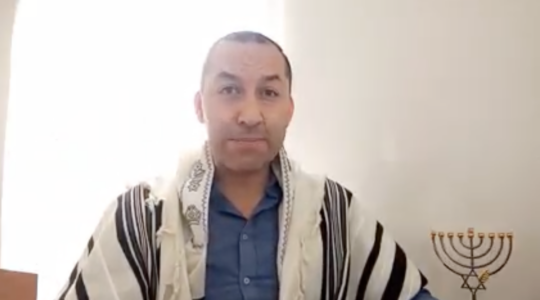PARIS (JTA) — Over 42 years after a bomb killed four and injured dozens outside the Rue Copernic synagogue, a court here has convicted a Lebanese-Canadian academic of the crime and given him a life sentence.
Hassan Diab, now a Canadian citizen, was convicted in absentia on Friday after more than a decade of start and stop legal proceedings. An arrest warrant has been issued but there were no immediate signs that Canada would agree to an extradition.
The bombing, which took place on Oct. 3, 1980, was understood to be the first fatal antisemitic attack in France since the Holocaust. Hundreds of thousands joined historically large protests in its wake.
After authorities initially thought the bombing was carried out by neo-Nazis, they issued an arrest warrant for Diab — believed to be a former member of a dissident group called the Popular Front for the Liberation of Palestine-Special Operations — in 2008. He was extradited from Canada in 2014, indicted in Paris and imprisoned.
But in a surprise to many, his case was dismissed in 2018, allowing him to return to Canada. Prosecutors appealed, leading to another surprising turn of events in 2021 as the court upheld the earlier decision, directing Diab to stand trial.
Over the course of five hours on Thursday, prosecutor Benjamin Chambre said: “It is the honor of the French judicial and police institutions to have persevered… It is a strong signal: France does not abdicate in the face of terrorism.”
His hours of requisitions were followed by as many hours of defense pleadings. “I am here before you to avoid a miscarriage of justice,” said Diab’s attorney William Bourdon. He argued there was “no material element” and “no proof” of the Diab’s presence in France at the time of the attack.
“Even 43 years later, this trial had to take place,” said Bernard Cahen, one of multiple lawyers advocating for the victims’ families, said during the trial.
The new trial took place after a decade of other antisemitic attacks on communal targets and individuals, which in total caused many French Jews to feel afraid, both about their personal vulnerability and about the state’s commitment to their safety. French-Jewish immigration to Israel increased significantly after the attack on a kosher supermarket in Paris in 2015.
Jean-François Bensahel, president of the Copernic synagogue, told the Jewish Telegraphic Agency last month that the 1980 bombing was “engraved in our community’s history.”
JTA has documented Jewish history in real-time for over a century. Keep our journalism strong by joining us in supporting independent, award-winning reporting.






